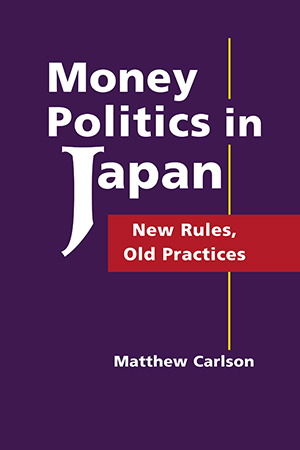Have the far-reaching political reforms enacted in Japan more than a decade ago succeeded in reducing corruption and the high costs of elections? Or have the results been "business as usual"? Matthew Carlson analyzes the ebb and flow of money in Japanese politics, drawing on extensive fieldwork and detailed campaign-finance data to investigate campaign practices, party strategies, and the effects of formal and informal rules.
Matthew Carlson is assistant professor of political science at the University of Vermont.
“[Does] a great job filling an important gap in political science research on Japan.”—Axel Klein,
Pacific Affairs
"[Carlson’s] book is based on an excellent understanding of Japanese politics.... He combines thorough quantitative analyses of fundraising and spending data with several illuminative case studies to persuasively support his conclusions.... Provides an important overview of campaign finance in Japan.”—Ray Christensen,
Japanese Journal of Political Science
"An excellent book.... Of interest to any student or researcher of Japanese politics or comparative electoral systems. Highly recommended."—
Choice
"This meticulous and systematic analysis demonstrates the critical role of money to politicians and parties in the new and largely unpredictable environment of post-1994 Japanese politics."—Takashi Inoguchi, Chuo University
"This will become 'the' book on the subject—a fine achievement indeed."—Robert Pekkanen, University of Washington
"Carlson's book is founded on a substantial collection of data that seeks to explain both campaign spending and the correlation between spending and electoral outcomes in Japan. It is one of the most comprehensive examinations that I know of in English on the use of money in Japanese elections."—Ethan Scheiner, UC Davis






